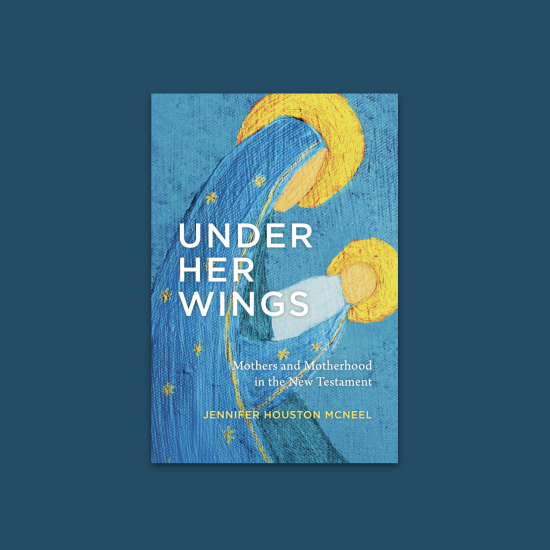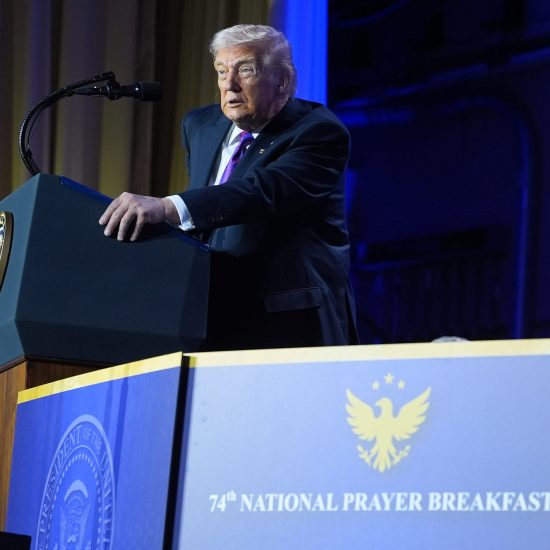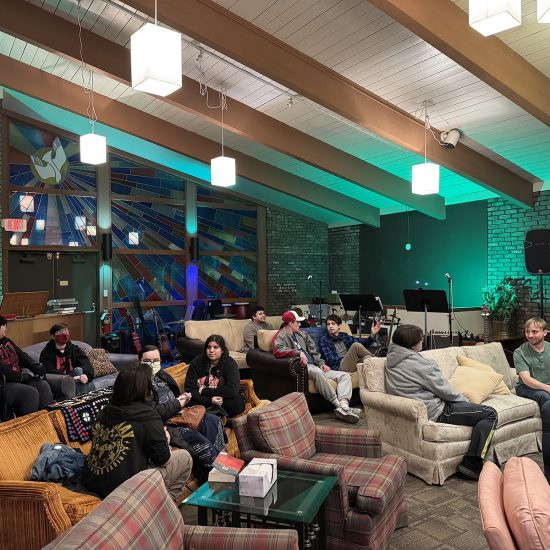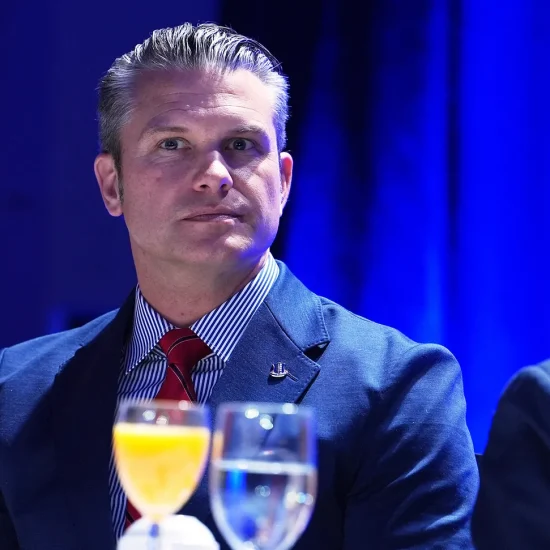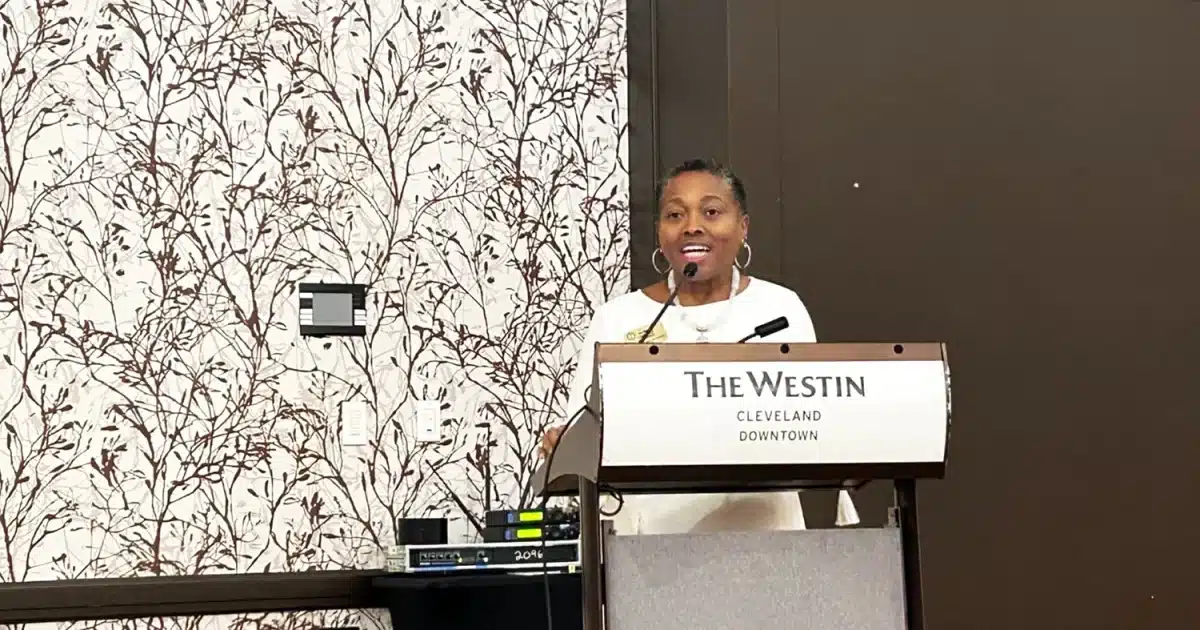
(RNS) — The United Church of Christ elected its first female general minister and president on Monday (July 3) at its 34th General Synod in Indianapolis.
The Rev. Karen Georgia Thompson’s election also makes her the first woman of African descent to lead the mainline denomination.
“Today, United Church of Christ, we created a first together. It won’t be the last first,” Thompson, dressed in white, told delegates afterward.
Those delegates overwhelmingly approved Thompson’s nomination to a four-year term as general minister and president of the UCC on Monday morning, breaking into song and applause as the results of the vote — 626 yeses to 43 no’s — were announced.
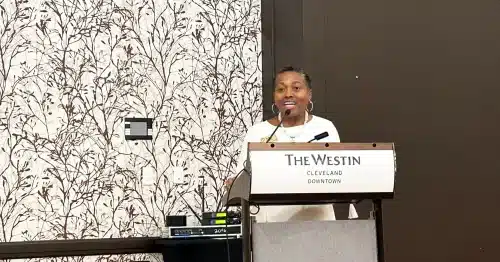
Rev. Karen Georgia Thompson was elected general minister and president of the United Church of Christ on Monday, July 3, 2023. The election marks the first time a woman has held this role. Courtesy UCC press release
Thompson is the third woman to be nominated to lead the UCC, which celebrated its 66th anniversary days before General Synod began.
While neither the Rev. Yvonne Delk (nominated in 1989) nor the Rev. Barbara Brown Zikmund (1999) ultimately were elected to lead the denomination, Thompson said Friday during her nomination speech, “Their ministries have individually and collectively shaped the UCC and paved the way for women to serve in ministry in the UCC, opening wide the doors of this denomination.”
That Thompson is the first woman to lead the denomination may be surprising to some given the denomination’s progressive stances on women’s rights and many other issues.
For instance, General Synod attendees took part in a prayer walk Saturday to the Indiana State Capitol to protest legislative efforts to ban gender-affirming care and restrict abortion services. Delegates also are expected to vote on resolutions expressing support for reparations for African Americans, calling on local churches to declare themselves “white supremacy-free” zones and launching a study of the denomination’s relationships with boarding schools that separated generations of Indigenous children from their families and cultures in the U.S.
“I want to hold value to the moment and to what it has taken to get to this place, because, as I’ve said before, it’s not just me — there are others who came before me — and perhaps this is a right time for the denomination,” Thompson told Religion News Service before the vote by delegates to the biennial meeting.
She pointed to Delk and Zikmund’s nominations throughout her candidacy and again in her acceptance speech Monday, because, she said, “I think when we talk about being progressive, we need to remember our own history that this has been tried and done — and without success.”
Thompson is associate general minister for the UCC’s wider church ministries and co-executive for its global ministries, and she recently was elected to the executive committee of the World Council of Churches, according to the denomination. She has served the UCC for 14 years: previously as minister for racial justice and minister for ecumenical and interfaith relations.
Before Monday’s vote, the Rev. Noah Brewer-Wallin, chair of the search committee that recommended Thompson, praised the “unique and intimate perspective” she brings to the role of general minister and president from those previous roles within the denomination.
After graduating from Brooklyn College, Thompson earned a Master of Public Administration from North Carolina Central University, a Master of Divinity from Union Theological Seminary and a Doctorate in Ministry from Seattle University, according to the UCC. She wrote her dissertation on the “religious multiplicity” of African Caribbean people, which includes practices from both African Traditional Religions and Christianity.
Born in Jamaica, she said she brings “a global view to the church.”
She also brings experience leading ecumenical organizations like the National Council of Churches, the Caribbean and North American Council of the World Communion of Reformed Churches and Churches Uniting in Christ, according to the UCC.
That is reflected in what the denomination described as the heart of Thompson’s work and her vision for the UCC: religious multiplicity and diversity, justice for marginalized communities worldwide and affirming spiritual practices beyond mainline Christianity.
“The United Church of Christ, I think, continues to live into and honor a legacy of what we call progressive engagement in the public sphere, and I would like to see that happen, and I do wonder what that means for our 21st-century existence. I think we’re only as progressive as the next thing that we encounter,” Thompson told RNS.
She added, “I believe that when we talk about being progressive in the United Church of Christ, we talk about no matter who you are or where you are in life’s journey, all are welcome here. I want to push us to think about what it means for us to broaden that welcome in terms of how we understand hospitality in the church, who’s welcome, who’s invited. How do we ensure not that when people come, we’re making adjustments for their participation, but what do we need to do to ensure that when people come, we are already ready for their participation?”
Thompson will step into the role of general minister and president on Aug. 1. She follows the Rev. John Dorhauer, who is finishing eight years in the role.
The UCC’s General Synod is part business meeting, part worship service and part “family reunion,” as the Rev. Traci Blackmon, associate general minister, said before the last meeting in 2021.
That meeting was held online, making this the first time the UCC has gathered in person since 2019, before the COVID-19 pandemic upended gatherings around the world.
The theme of this year’s General Synod, which runs June 30 to July 4, is “Making All Things New,” inspired by a passage in the biblical book of Isaiah: “Do not remember the former things or consider the things of old. I am about to do a new thing; now it springs forth, do you not perceive it? I will make a way in the wilderness and rivers in the desert.”
About 2,000 people — including 733 voting delegates — are attending the meeting, which kicked off with a message from keynote speaker the Rev. Nadia Bolz-Weber, an ordained pastor in the mainline Evangelical Lutheran Church in America and a bestselling author.


